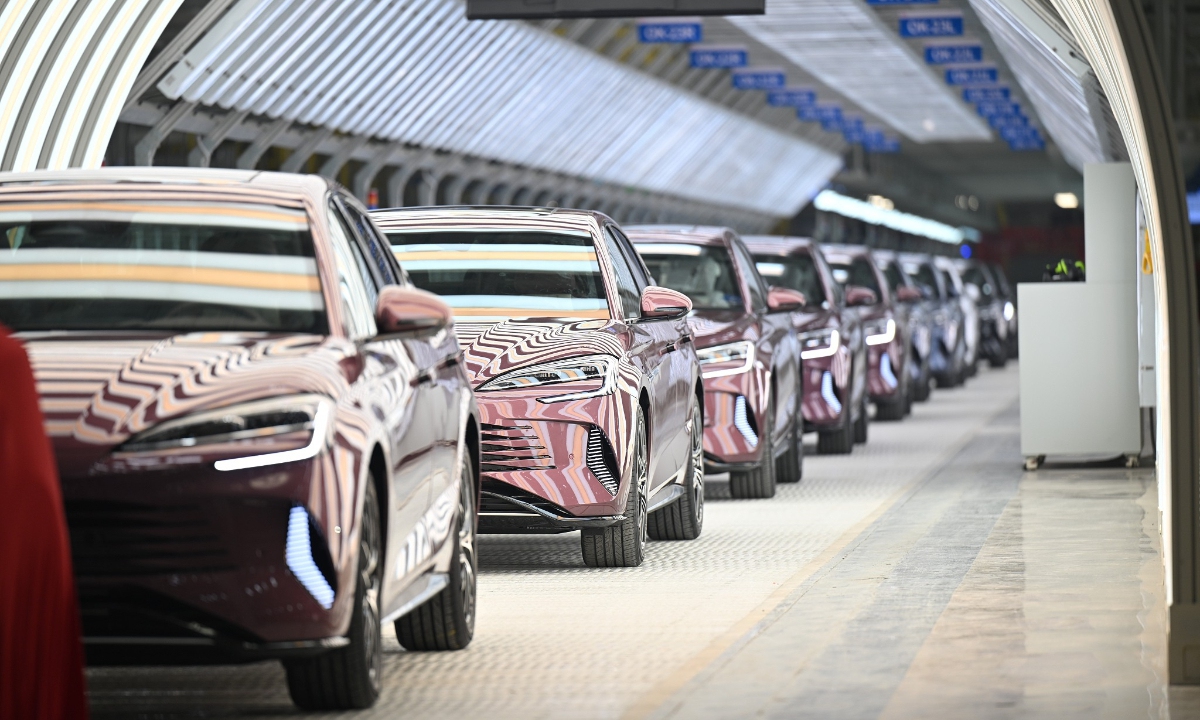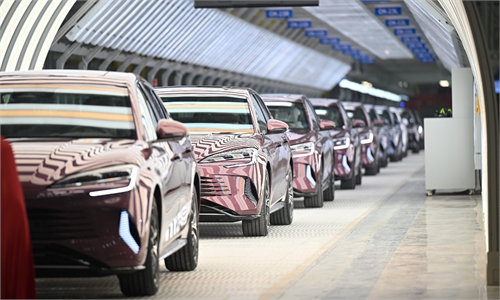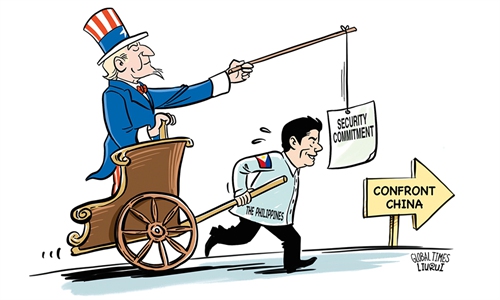German business chamber in China says ‘tariffs are not really in favor of the global auto industry’
More rational voices ‘may exert pressure’ on EU politicians to correct wrong practice

EV Photo:VCG
The EU's tariff decision on imports of Chinese battery electric vehicles (EVs) has drawn stern criticism from the German business community in China, with the German Chamber of Commerce (GCC) saying that such tariffs could affect the global automotive industry and calling for negotiations.
At the press conference on releasing its 2024 Flash Survey, Clas Neumann, Chairperson of the Board of German Chamber of Commerce in East China, told the Global Times that "tariffs are not in favor of the global auto industry and lead to an increasing cycle of reciprocal tariff increases."
"The tariffs are not in favor of the auto industry. Competition should be decided based on equal and fair treatment, and not through an increasing cycle of tariffs, which have the threat of counter tariffs and can spiral in the wrong direction," Neumann told the Global Times.
Chinese observers said the strong response by the German companies, following rounds and rounds of criticism by a wide range of parties, showed again that the European Commission (EC)'s decision on June 12 is not based on the needs of its automotive industry and has not much to claim in terms of protecting the EU industry.
"We hope that all parties will come together to address the identified issues and find solutions, so these tariffs do not become a permanent measure," Neumann said.
Another spokesman, Maximilian Butek, executive director and board member of the GCC in East China, said that the tariffs, as suggested now by the EU, will not increase the competitiveness of the automotive industry.
"Therefore, we rather advocate for investing in the competitiveness of the EU rather than trying to protect the automotive industry. You cannot protect the automotive industry only in the EU if it is all over the world."
The intended tariffs would also potentially apply to global brands that manufacture vehicles in China, as the tariffs target cars purchased from China, said Butek. Butek questioned the goal of implementing the tariffs to protect the industry, while the industry does not want the protection.
It is inaccurate to describe Chinese exports to the EU as flooding the market, as the market share of Chinese EVs in Europe is still quite small, Butek said. "That provides ample space for positive negotiations rather than fostering tariffs at this point."
Hours after the EC announced its decision on tariffs, a number of EU member countries including Norway, Germany and Hungary had voiced their opposition.
The stance held by the GCC echoed that of the Hungarian government. Last week, Hungary's economy ministry said that the country disagrees with Europe's "brutal" punishment of Chinese EV manufacturers.
"Instead of punitive tariffs, the EU should support the European EV industry," the ministry said in a statement.
German carmakers including Mercedes-Benz, BMW and Volkswagen also responded, criticizing the EU's decision.
Chinese analysts said the EC's decision has overlooked the interlocking interests of the Chinese and European vehicle industries.
In recent years, a number of EU companies including BMW, Volkswagen and Faurecia have expanded their new-energy vehicle (NEV) business in China and intensified cooperation with Chinese companies in the fields of batteries and smart applications. Chinese companies including CATL, Nio and BYD are investing in production facilities in the EU.
Huo Jianguo, vice chairman of the China Society for World Trade Organization Studies in Beijing, told the Global Times on Monday that more opposing voices before the tariff finally lands may exert more pressure on the EC to correct its wrongful and unwise decision.
The tariffs were significantly higher than what media reports previously disclosed, indicating that the anti-China forces within the EU are rather determined, Huo said, and the politicization of trade and economic matters and blindly following the US will only bring commercial losses to the EU.
Chinese analysts said China has sufficient tools and measures before a final decision by the EU is made, and China could lodge lawsuits under the dispute settlement mechanism of the WTO.
Chinese Vice Premier Ding Xuexiang is set to hold the fifth China-EU High-Level Environment and Climate Dialogue at the EU headquarters in Brussels and visit Luxembourg from Monday to June 21.
"China and the EU share extensive common interests and broad space for cooperation in green development… We hope to deepen and solidify our green partnership with the EU and make green the most distinctive color of China-EU cooperation," Foreign Ministry spokesperson Lin Jian told a regular press briefing on Friday.
In May, China's NEV production grew by 33.6 percent year-on-year while integrated circuits saw a 17.3 percent increase, data from the National Bureau of Statistics showed on Monday. China's industrial production continued to expand steadily.
The GCC flash survey stated that optimism in the Chinese economy is slowly returning, as 38 percent of surveyed companies expect an improvement in the coming six months. Also, 53 percent of respondents plan to increase their investment in China in the coming two years.




